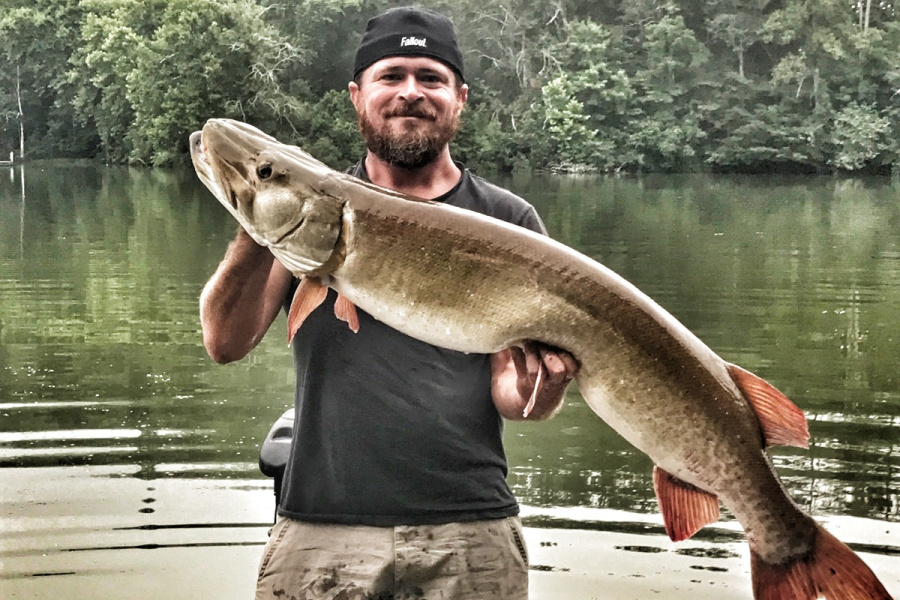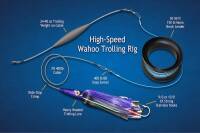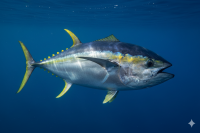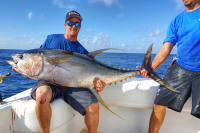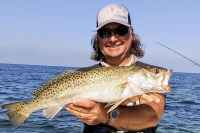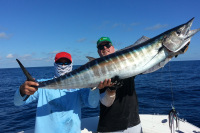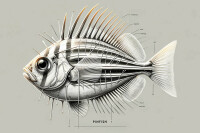The musky, also known as the "fish of 10,000 casts", is one of America's largest, most elusive, and exciting freshwater game fish. As a long-time Tennessee angler and outdoor enthusiast, I can tell you that the musky fishing in the Volunteer State is second to none. From the many rivers that wind through the eastern mountains, to large reservoirs nestled between the rolling hills of Middle Tennessee, if you're looking to tangle with a toothy critter, Tennessee musky fishing won't disappoint.
Abundant Musky Waters Across the State
Tennessee boasts an abundance of musky waters across the state, giving anglers plenty of opportunities to chase these topwater titans. Popular musky fisheries include the French Broad River, Holston River, Clinch River, Powell River, Collins River, Melton Hill Reservoir, Norris Reservoir, and Center Hill Lake. Each body of water has its own unique characteristics that make it attractive to transient muskies. The many rivers that course through the mountains in the eastern part of the state provide miles of fishable water with deep holes, fast water, and ample structure for lurking muskies. The reservoirs of middle and east Tennessee warm earlier in the spring, but also cool quicker in the fall. Their long, winding shorelines give muskies the opportunity to follow schools of shad and track down a meal.
Wherever you wet a line for musky in Tennessee, stealth, patience, and perseverance will be required. Let's discuss a few of the state's prime musky waters in more detail.
Melton Hill Reservoir
Located near Oak Ridge, Melton Hill Reservoir spans over 20 miles of the Clinch River and provides east Tennessee anglers with incredible musky fishing opportunities. It consistently produces trophy muskies over 45 inches, including the current state record of 54 lb 9 oz (caught in 1993 by Benny Hull).
The clear waters of Melton Hill allow muskies to spot and ambush prey from a distance. Focus your efforts in the reservoir's many creek arms, targeting blowdowns, stump fields, and rock walls that provide ambush points for the reservoir's large population of muskies. Early spring and late fall are prime times as muskies seek warm, shallow water.
Slow trolling large crankbaits like the
Bondy Bait,
Double Cowgirl, or
Hellhound allow you to cover water and trigger reaction strikes from otherwise inactive fish. If trolling isn't your thing, fan cast large rubber baits like
Bulldawgs or
Medusas around rock points and submerged timber. Hang on tight, Melton Hill's toothy residents won't give up without a fight!
Norris Reservoir
Stretching over 34,000 acres along the Clinch River near Knoxville, Norris Reservoir is another premier musky fishery for east Tennessee anglers. While it may not produce as many 50+ inch fish as Melton Hill, its large size gives it an edge for producing sheer numbers of fish. Focus your efforts on the reservoir's lower section, as it has better habitat compared to the riverine upper end.
When targeting Norris muskies, burning
large spinnerbaits like the Double Cowgirl along extended points, humps, and creek channel edges allows you to cover water in search of active fish.
Jerkbaits ripped over shallow weed edges and
Bulldawgs pounded through standing timber also produce violent strikes from Norris Reservoir's many muskies.
Great Falls Reservoir
Nestled on the Columbia River near Cookeville, Great Falls (also known as Center Hill Lake) offers middle Tennessee anglers exciting musky action without traveling east. Known for producing trophy muskies with several 50+ inch fish caught annually, Great Falls sees significantly less fishing pressure than lakes and rivers near Knoxville and Chattanooga.
The clear water of Great Falls allows muskies to use their excellent vision to prey upon unsuspecting crappie, bluegill, and shad. Focus your efforts along dam faces, extended mudflats, creek channel swings, islands, and standing timber in the lower end of the reservoir.
Glide baits like the
Phantom Softail and
Slopmaster are particularly deadly, imitating wounded baitfish as they "walk the dog" just below the surface. Hang on, as Great Falls' muskies are known for explosive topwater strikes!
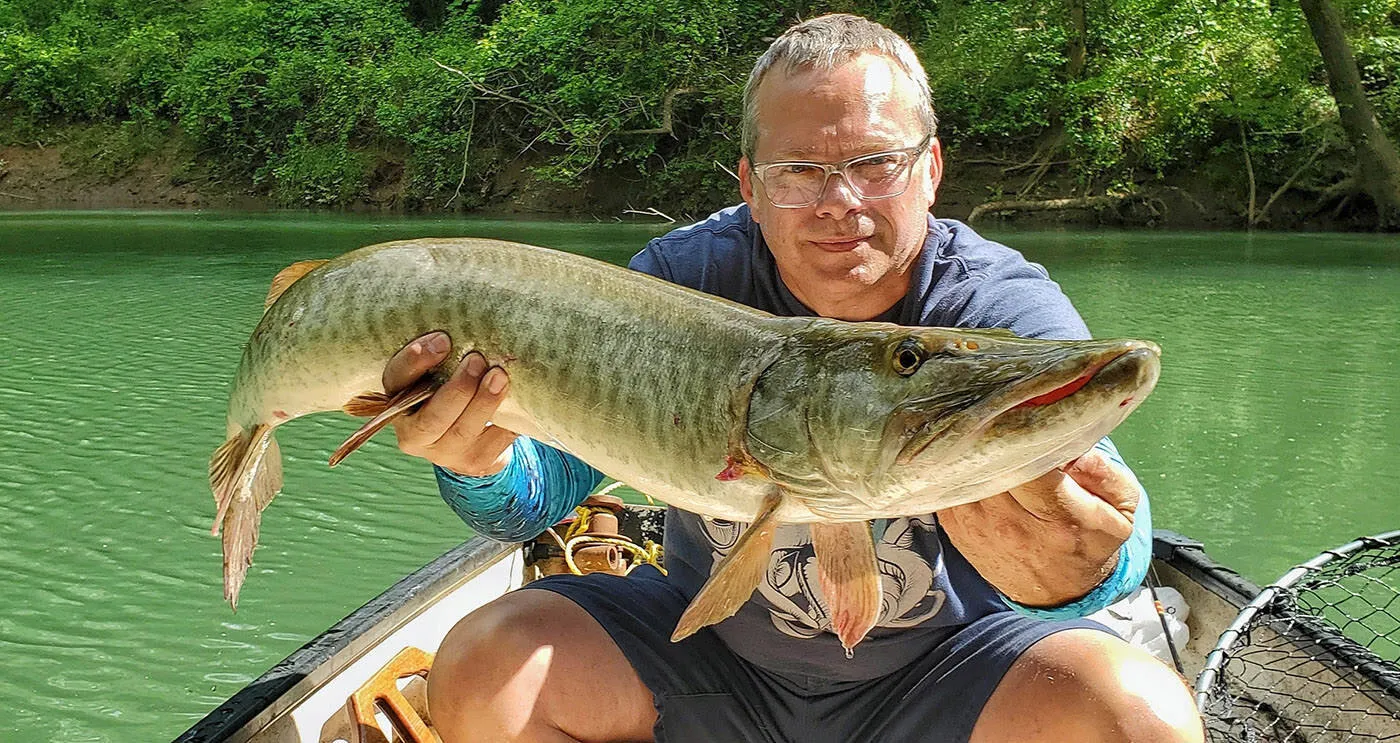
Seth Horne Musky fishing
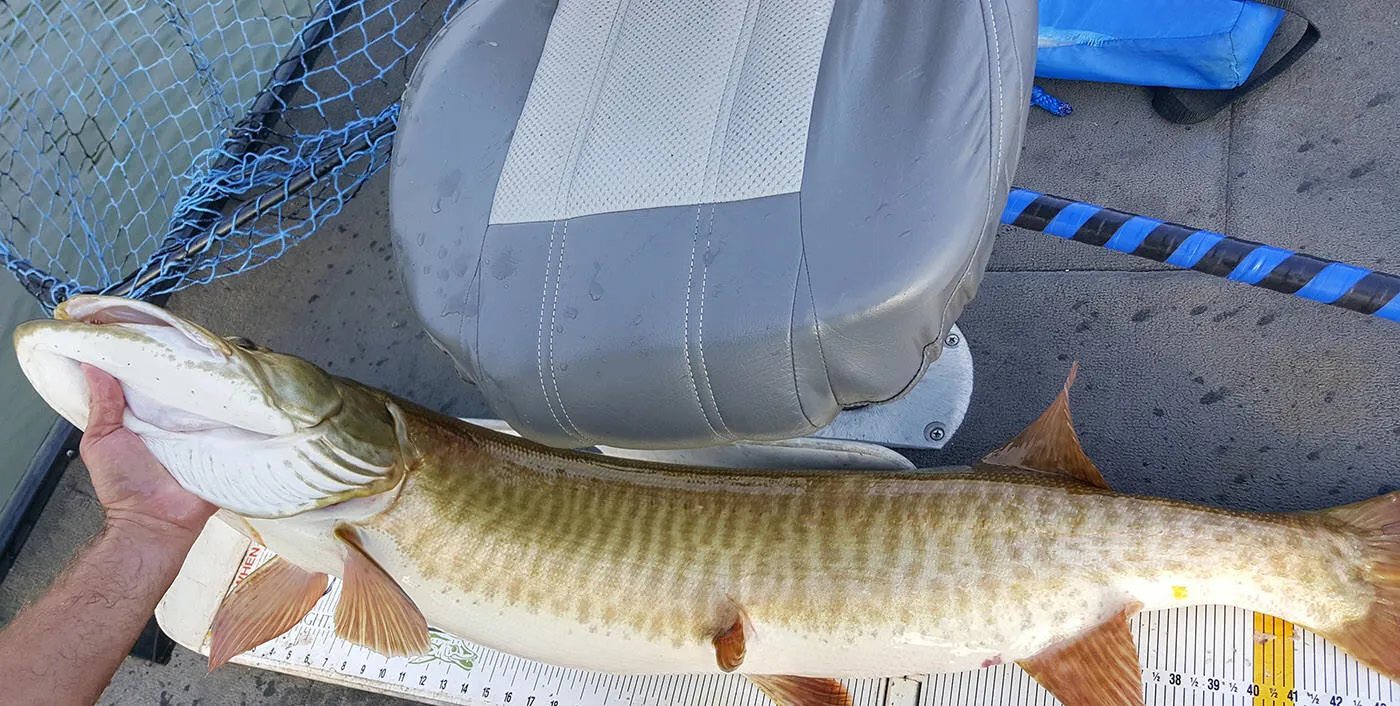
big musky being measured by Cory Allen
Seasons and Techniques
Now that you have a taste of Tennessee's best musky waters, let's break down the seasonal patterns and most effective techniques for enticing a toothy critter to bite.
The Volunteer State's musky fishing can be broken into two primary seasons - spring and fall. Here is an overview of what you can expect.
Spring
As water temperatures climb into the upper 40s, Tennessee's muskies shake off their winter doldrums and become more active. Target shallow bays and creek arms warmed by the sun, focusing on areas with emerging weeds and wood cover. Lures like shallow diving crankbaits, spinnerbaits, and jerkbaits allow you to target these shallow zones while covering water.
As the water warms into the low 50s, the
musky's metabolism increases and they must feed aggressively. Focus on windblown points, channel swings, emerging weedlines, and creek arms warmed by runoff.
Topwaters,
bucktails, and
soft plastics become deadly during the pre-spawn. Work them slowly and methodically, keeping them in the strike zone as long as possible.
Fall
As air and water temperatures cool in the fall, muskies go on a feeding frenzy in preparation for winter. They gorge themselves on shad and panfish that migrate to creek channels and reservoir basins. Trolling deep diving crankbaits along these migration routes allows you to capitalize on the fall feeding frenzy. Jerkbaits and glide baits are also deadly, mimicking wounded baitfish struggling in the cooling water.
As fall transitions into winter,
target deeper creek channels, river channels, and reservoir basins warmed by discharge or power generation. These areas become winter holding zones that concentrate bait and sluggish muskies. Slowly working
blade baits,
swimbaits, and
tube jigs along the bottom vertically jigging or casting and counting down can entice a strike.
Gearing Up
Chasing Tennessee muskies requires having the appropriate gear for battling these tackle busting giants. Let's look at some recommended rods, reels, line, and leader for musky fishing.
Musky Rods
A quality musky rod should have a long handle for casting leverage, a soft but strong tip to cushion lunging head shakes, and strong backbone to turn angry fish. Many anglers recommend a 9 foot medium heavy power, extra fast action rod. The length allows for good casting distance while the power and action characteristics are ideal for fighting big fish.
While a
baitcasting rod is most common, don't overlook the effectiveness of a
spinning rod for tossing heavy jerkbaits, topwaters, and in-line spinners great distances with limited fatigue.
Musky Reels
A quality low-profile baitcasting reel in a size 50 or 60 provides necessary capacity and gearing to handle massive lures and fish. Reels like the Shimano Tranx 400 or Daiwa Lexa 400 shine for musky fishing, with rugged construction to stand up to the abuse.
Match your reel to a heavy duty musky rod rated for 80-100 lb braided line to form a balanced, durable setup.
Fishing Line
For mainline, 80 lb braided line provides excellent strength, sensitivity, and abrasion resistance for tossing heavy musky lures. Top shots of 50-80 lb fluorocarbon leader provide invisibility and abrasion resistance around toothy mouths. For increased stealth, some anglers opt for 40 lb low-vis green monofilament. A wire trace leader is highly recommended. AFW makes a great product.
Musky Lures
Stock your tackle box with an array of lures in various sizes, profiles, and colors to be prepared for any scenario. Here are some recommended musky lures:
- Topwaters: Whopper Plopper, Wiley Musky Maniac, Spro Bronzeye Frog
- Crankbaits: Shad Rap, Bomber Long A, Bondy Bait
- Bucktails: Double Blade Water Wolf, Terminator T1, Salmo Hornet
- Soft Swimbaits: Bull Dawg, Frenzy, Swim Whizz
Additionally,
stock up on titanium leaders, large nets, quality hooks, and other terminal tackle tailored to handle monster muskies.
The Fight of a Lifetime
After countless casts and hours spent targeting these elusive fish, all your persistence finally pays off. A massive swirl behind your double 10 spinnerbait. A jolting “thunk” felt at the end of the figure 8. You are hooked up with a freshwater giant!
The golden flashes of a trophy sized musky turn your crank as it breaches the surface, scattering baitfish in its wake. Pray the hooks hold as the beast dives and surges, using its massive tail to take line against the drag. Don't let your guard down if it suddenly rests beneath the boat - a musky is likely prepping for another breathtaking run.
Time slows and your nerves steady as you gain control, coaxing the colossal fish closer to the boat. As your net glides under its shiny flanks, a satisfied smile creeps onto your face. The musky's vacant glare confirms it fought just as hard. You've just experienced
the satisfaction Tennessee musky fishing offers in spades. Enjoy this moment, as these glamorous fish only come the angler's way after considerable time and effort.
In Brief
Tennessee undoubtedly holds some of the finest musky fishing opportunities in the South. From the reservoir waters near major cities, to gin clear streams threading the Appalachian valleys, patience and perseverance will be rewarded with sights, strikes, and fish stories that last a lifetime. Gear up with the right rods, reels, and bait selection to be prepared for whatever comes your way. Seek knowledge from those who have been successful and be willing to learn. The "fish of 10,000 casts" is waiting. Enjoy the journey!
Seth Horne
In The Spread | Founder, CEO & Chief Fishing Educator
